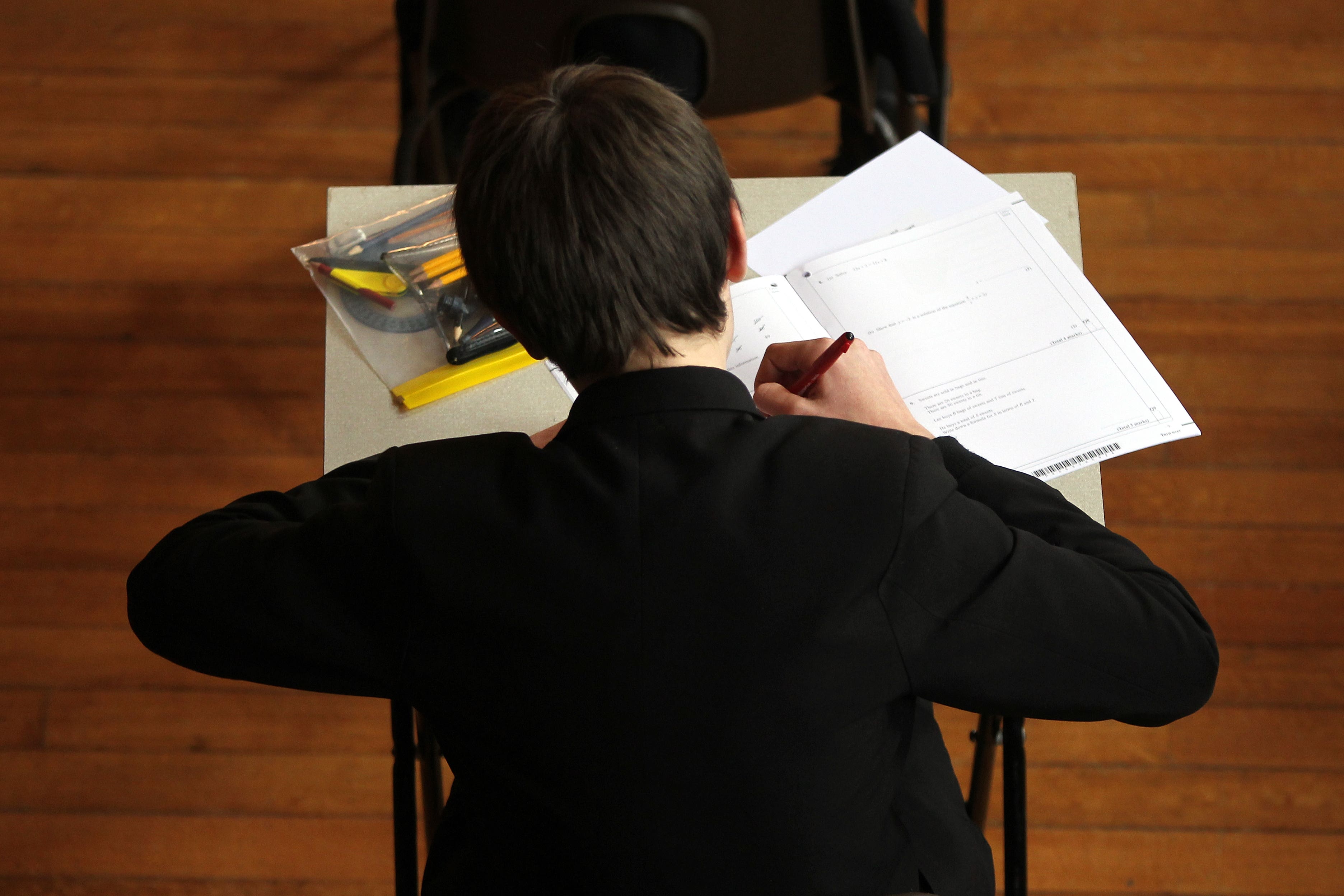Teenagers withdrawn from GCSEs and missed class due to exam anxiety – survey
More than three in four teachers reported seeing mental health issues related to exam anxiety among their Year 11 pupils.

Teenagers were withdrawn from their GCSE exams and missed class this year due to exam anxiety, a survey has suggested.
More than three in four (77%) teachers and school leaders said there had been mental health issues related to exam anxiety among their Year 11 pupils this academic year.
A poll, conducted for the Association of School and College Leaders (ASCL), found that nearly two in three (65%) school staff said GCSE pupils had not attended class this year due to exam anxiety.
It is clear that the current high-stakes, end-of-course exam model is causing significant stress and anxiety among students, which is unacceptable
More than one in four (28%) reported that Year 11 pupils had been withdrawn from GCSE exams due to exam anxiety, while 74% said alternative arrangements were necessary for taking exams due to anxiety.
The school leaders’ union has suggested that the “high-stakes” end-of-course exam model is causing “significant stress and anxiety” among students.
The poll by the Teacher Tapp app of more than 4,600 secondary school teachers and leaders in England in June found that 47% said Year 11 pupils had arrived or left the exam hall in distress, while 46% said they experienced physical reactions to the stress of exams during the exam period.
The findings have been published as pupils in England, Wales and Northern Ireland are due to receive their GCSE results on Thursday.
Pepe Di’Iasio, general secretary of the ASCL, said the findings “paint a deeply concerning picture of the significant impact” that the current GCSE system is having on the mental health of pupils.
He said: “These results are a stark reminder that the changes made to GCSEs under the previous government have had unintended and detrimental consequences on our young people.
“It is clear that the current high-stakes, end-of-course exam model is causing significant stress and anxiety among students, which is unacceptable.”
Many of the reformed GCSEs in England – which were introduced by then-education secretary Michael Gove – have less coursework and a greater focus on exams at the end of the two-year course.
It is vital that we strike the right balance of assessment methods while preserving the integrity of examinations
The poll found there was an even split between teachers and leaders who believe there are too many papers/hours of terminal examinations in their subject at GCSE (47%) and those who do not (46%).
When asked what changes they would like to see in assessments at the age of 16, only 4% favoured no changes.
The majority of teachers and leaders surveyed said they would like options for modular exams throughout the year (51%) and more vocational subjects available at GCSE (50%).
The Government launched its curriculum and assessment review last month, which will be chaired by education expert Professor Becky Francis.
Mr Di’Iasio said: “It is vital that we strike the right balance of assessment methods while preserving the integrity of examinations. The wellbeing of our students must be at the forefront of any reforms.
“We look forward to working with the new Government to develop a system that supports the mental health of students, reduces unnecessary stress, and provides a fair and balanced approach to assessment.
“It is also important that any changes to the existing system are manageable for education staff to administer and implement and are introduced in a way that does not overload them.”
A Department for Education (DfE) spokesperson said: “High and rising school standards are at the heart of our mission to break down barriers to opportunity and give every child the best start in life.
“We are supporting schools to identify mental health problems and respond appropriately, and will provide access to a specialist mental health professional in every school.
“The curriculum and assessment review will seek to deliver an assessment system that captures the strengths of every child and young person, with the right balance of assessment methods whilst maintaining the important role of examinations.”
Bookmark popover
Removed from bookmarks